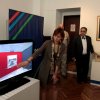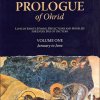Obrazovno-istraživačko društvo Mihajlo Pupin, uz podršku Srpske akademije nauka i umetnosti i kompanije Telekom Srbija, premijerno je predstavilo Virtuelni muzej Mihajla Pupina u Galeriji nauke i tehnike SANU u Beogradu. Pored upoznavanja sa važnim i široj javnosti nedovoljno poznatim informacijama o Mihajlu Pupinu, Virtuelni muzej donosi i potpuno nov način predstavljanja naučne i kulturne baštine. Ulaskom u digitalno doba, omogućen je i pristup muzejima putem Interneta, koji ni na koji način ne umanjuje pravi doživljaj posete muzeju.
Projektom Virtuelni muzej Mihajla Pupina odaje se počast brilijantnom naučniku, pronalazaču, profesoru, počasnom doktoru 18 univerziteta, dobitniku mnogih naučnih nagrada i medalja, počasnom konzulu Srbije u SAD. Posetioci će imati priliku da se upoznaju sa životnom pričom srpskog velikana kroz deset celina: putovanje kroz Idvor, Ameriku, profesorski rad i priznanja, tajmlajn, autobiografiju, naučni rad, nacionalno-političke doprinose, legat u Narodnom muzeju, legat u Univerzitetskoj biblioteci, kao i dobročinstva.
Prisutne je na otvaranju muzeja pozdravila autorka projekta, Aleksandra Ninković-Tešić, potpredsednica Obrazovno-istraživačkog društva Mihajlo Pupin. „Ovaj projekat predstavlja važan doprinos srpskoj kulturi i istoriji nauke, zbog čega je i dobio podršku SANU i Telekoma. Kada probate da na jednom mestu sakupite raznoliko i bogato nasleđe susrećete se sa nekoliko velikih izazova. Prvi je što su njegovi mnogobrojni doprinosi toliko raznovrsni, obuhvataju ne samo širok geografski prostor, već s velikim uspehom ulaze u različite, nimalo srodne oblasti. Drugi izazov predstavljaju zaborav i nebriga u koju su utonuli mnogi važni podaci do kojih se teško dolazi. Ova postavka pravljena je s ciljem da otvori što više velikih tema koje nosi Pupinovo nasleđe, da vas pozove na dalje istraživanje i da doprinese poštovanju koje naše društvo treba da ima kada se spomene ime Mihajlo Idvorski Pupin“, izjavila je Ninković-Tešić.
Na značaj Mihajla Pupina, čiji doprinosi su menjali sliku nauke prve polovine dvadesetog veka ukazao je i direktor Galerije nauke i tehnike, akademik Zoran Petrović, koji je istakao i važnost pronalaženja načina da se njegovo nasleđe promoviše.
Posetiocima se takođe obratila i Marija Bošković, direktorka PR sektora kompanije Telekom Srbija: „Mihajlo Pupin je svojim pronalascima ostvario veliki pomak, između ostalog, u razvoju telefonije, i mi u kompaniji Telekom Srbija ponosni smo što nam se ukazala prilika da učestvujemo u takvom projektu i pomognemo da se održi i veliča uspomena na izvanrednog naučnika kakav je bio Mihajlo Pupin. Ono što možemo da obećamo jeste da ćemo nastaviti da ulažemo maksimalan trud da inovacijama pomeramo granice na polju telekomunikacija, baš kao što je to činio Pupin, kako bismo svojim korisnicima obezbedili usluge najvišeg kvaliteta.“
Osim ogromnog doprinosa koje je dao nauci, Mihajlo Pupin je, prema rečima Lajona Felsa u Vašington Postu, bio jedna od najšarmantnijih i najljubaznijih ličnosti XX veka, dok je njegova životna priča uzbudljiva koliko i njegova naučna otkrića. Zbog toga će, sasvim sigurno, obilazak Virtuelnog muzeja Mihajla Pupina, svakom posetiocu biti novo, zanimljivo i veoma poučno iskustvo.
Virtuelni muzej Mihajla Pupina možete posetiti na adresi: www.mihajlopupin.rs





